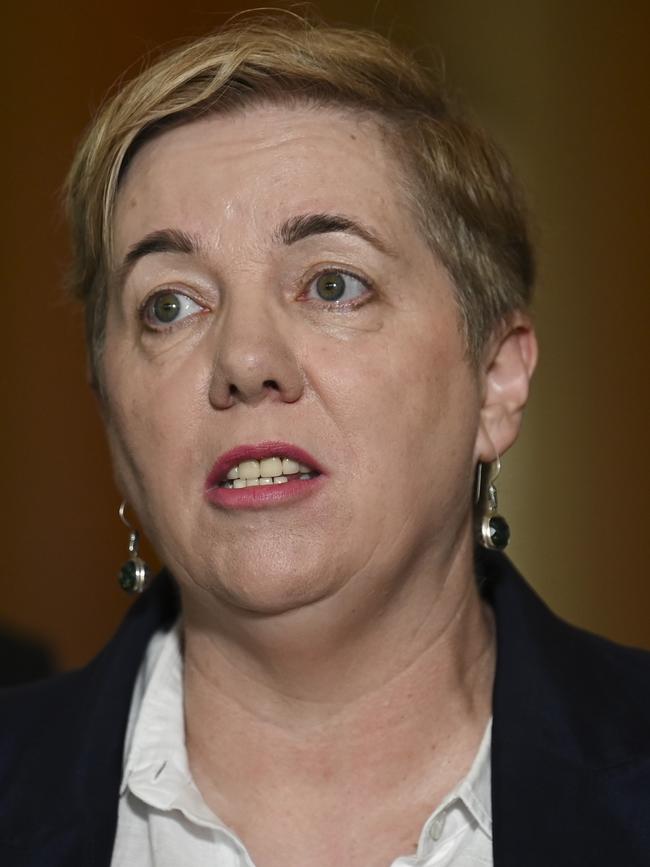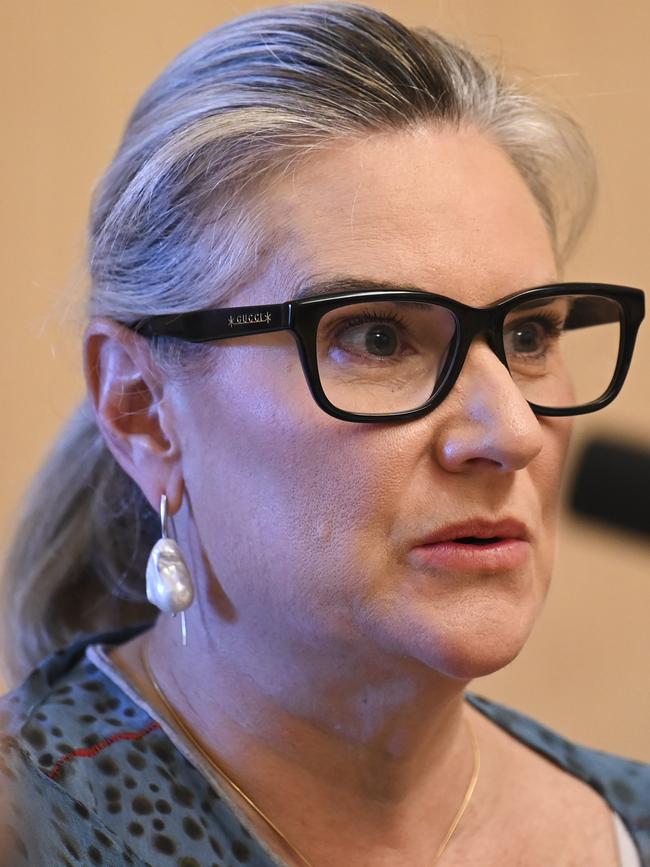My Health Record reforms pit doctor against doctor
Doctors will likely soon be obligated to provide patients with digital access to test results, provoking appeals not to crack down on noncompliance.

Efforts to fix the nation’s beleaguered digital health database have split the medical community, as doctors debate whether they should be penalised for failing to speedily provide patient test results.
Since returning to power in 2022, Labor has been determined to fix My Health Record, a system established under the Gillard government that current Health Minister Mark Butler has called “old technology”.
On January 30, the Senate’s community affairs legislation committee recommended a bill be passed to modernise the system. It would make participation in the system mandatory for all practitioners – though it still voluntary for patients – and withhold Medicare rebates from those who fail to upload test results and medical information onto patient records.
Australian Medical Association president Danielle McMullen called it a “blunt tool” and “lazy policy”, but said she had received assurance enforcement would not begin straight away.
“The Australian Medical Association (AMA) is very keen to see better uptake of the My Health Record and making it more useful in day-to-day clinical practice is the key – including better integrating it with clinical software,” Dr McMullen said.
“Linking a patient’s Medicare rebate to a requirement to upload to the My Health Record is a blunt tool and is lazy policy. We need to do much better as the reality is that the My Health system is out-of-date, clunky and has become an electronic shoe box full of PDF records.”
“We have discussed this issue with the Department of Health and Aged Care at length and we have been assured that there is no plan to extend the use of this power to GPs or other specialists in the near future.”
The government estimates only one in five diagnostic reports in radiology is being shared or uploaded to My Health Record. The legislation would first apply to pathologists and diagnostic imaging providers, with its scope intended to expand in future.

Once open for submissions, the bill provoked wide debate over its use of financial punishments, with many arguing it would keep doctors honest.
“This record has been around for a number of years now, and consumers have been asking for a very long time that information such as their blood test results … are easily accessible to save them having an extra test,” Consumers Health Forum chief executive Elizabeth Deveny said. “There’s general, broad support for this.
“People are often very surprised to discover that basic information about their healthcare has not been put anywhere where it can be accessed by others. That’s how the rest of our lives work now, isn’t it? Everything’s in the cloud.”
While money has been put aside for the overhaul, it is expected to generate savings for the government by slashing the number of duplicate tests conducted, thus cutting rebates. The Health Department estimates 5 per cent of all Medicare services come from duplicated pathology and diagnostic imaging testing.
The Productivity Commission in May last year said My Health Record was “plagued by incomplete records and poor usability”, and estimated reform could save the taxpayer up to $5.4bn a year in reduced time at hospitals, and $355m in duplicated tests.
The Royal Australian College of General Practitioners’ Health of the Nation report found in September that 31 per cent of GPs avoided using My Health Record.
But opposition has come from the medical professions most affected, namely the Royal Australian College of General Practitioners, the Australian Diagnostic Imaging Association and the Royal College of Pathologists Australasia.
They feared costs to update computer systems for My Health Record’s software and time spent by doctors educating patients on the system could be a burden for doctors, pleading that changes be stalled to ensure compliance before the rebate crackdown began. “The fundamental challenge is that digital uploads are not a service that medical practices have historically been required to provide, and adapting systems and laboratory software takes time,” RCPA president Trishe Leong said.
“Financial penalties … will not resolve these challenges or accelerate the transition. Instead, they risk placing additional strain on already struggling practices.
“The RCPA supports the overall aims of these changes but does not believe that tying them solely to Medicare rebates ensures their success. Effective implementation requires a well-planned, practical approach that takes into account the operational realities faced by pathology providers.
“Compliance with the proposed amendments is more complex than a simple financial incentive – it involves system upgrades, workflow adjustments, and adequate support to ensure the timely and accurate sharing of health data. A collaborative approach, rather than a rigid financial mechanism, will be key to ensuring a smooth and sustainable transition.”


In the Senate committee’s additional comments, Coalition senators Hollie Hughes and Maria Kovacic called for a reprieve. “We strongly encourage the government to adopt a fair grace period and robust support mechanisms to minimise unintended burdens and disruptions,” their comment reads.
Mr Butler estimated half of all pathology reports never made their way onto My Health Record. “Patients just find this so frustrating, because every lost test result means another day off work, another waiting room, another procedure and, for some, yet another gap fee,” Mr Butler said in his second reading speech.
“It’s a complete waste of time and money for patients and for the health system.”
The inquiry report flags an extension could be available for providers who require extra time to transition.





To join the conversation, please log in. Don't have an account? Register
Join the conversation, you are commenting as Logout